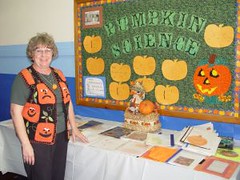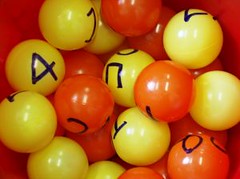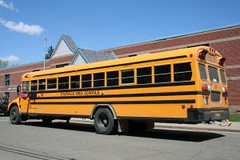
Teaching your children good manners is one of the most important life skills that you can give them. If a child has good manners they are perceived as kind and polite. Good manners are essential in school, in social situations, and later in life. Mannered children also make their parents proud.
The best way to teach your children manners is to start young and to be a good role model. Children will learn more by observing your behaviors than by listening to what you tell them.
Manners fall into two basic categories: social manners and table manners. These types of manners can be taught by exposing your children to situations where they will have an opportunity to practice good manners.
SOCIAL MANNERSSocial manners are important in all situations where your children will be interacting with other people. Practice these social skills so your child will know the proper way to behave.
1.
Interrupting. Children should be taught by age 3 that it is impolite to interrupt when their mother or father is speaking to another adult. Tell your child, “I’m sorry, but mommy is talking to someone right now. I will answer your question in just a few minutes.” Then go back to your conversation as if the interruption never happened. It may take several times before your children get the message.
2.
Politeness. Even toddlers can learn to be polite. From a young age they should be taught to say “please” and “thank you”. They can also learn how to say “excuse me” if they burp at the table. Learning to say “I’m sorry” might be the hardest one of all. It’s ok if they don’t mean it at first; they still need to apologize when they hurt someone else.
3.
Telephone Manners.Before you allow children to answer the phone in your house, you should teach them telephone etiquette. A toy phone is a great tool for practicing with kids. Make a ringing sound and ask them to pick up their phone. Teach them to speak in a clear voice and to say, “Hello, xxxx residence.” When you ask them to speak to someone in the house they should respond, “Just a minute please,” and set the phone down gently. Teach them how to take a message if the person is not available. Also, make sure that they never tell a stranger that their parent is not home.
4.
Sharing.Children need to learn the importance of sharing. If they have a sibling, they will get lots of practice sharing toys at home. If not, try to encourage your children to share their toys with friends when they have a play date. Sharing is a critical social skill that children must learn before entering school.
5.
Good Sportsmanship.No one likes a poor sport. Children must learn to lose graciously. Teach them to congratulate the winning team when they play sports. Children will learn by example, so if you are yelling at the ref from the stands or practicing bad sportsmanship, they will act the same way. Sportsmanship also carries over into other areas of life, such as playing games with other children.
TABLE MANNERSTable manners should be taught at a young age. It is important for children to mind their manners at both formal and informal get togethers. Make sure that they attend both so they can learn the different manners expected at each.
1.
Posture at Table.Teach your children that they should not lean their elbows on the table. Likewise don’t let them lean back in their chair or spin around while eating. They should keep their left hand in their lap and use their right hand for holding utensils if they are right-handed and visa versa if left-handed.
2.
Eating with Fingers.Most foods should be eaten with silverware, but it is ok to eat certain types of food with your fingers. You may eat hamburgers, sandwiches, chips, bread, corn on the cob, cookies, and fruit with stems with your fingers. When in doubt, tell them to watch the host or hostess and do what they do.
3.
Napkin.Children should remove the napkin from the table and place it in their lap when they sit at the table. It is to be used for dabbing at their mouth, not wiping their whole face. When they are finished with their meal the napkin should be placed next to the plate.
4.
Silverware.This is probably the most difficult part of table manners for children to master. Normally children will hold their fork or spoon in their right hand if they are right-handed. When they have to cut meat, they should hold the fork in their left hand, tines down, and the knife in their right hand. They will saw the meat with the knife and then put the knife down. Tell them to put the fork back in their right hand to put the meat in their mouth. It may take some time to learn this tricky skill.
5.
Passing Items.If the meal is being served family style, children will have to learn how to pass items to other people or ask for items. Make sure they always say “please” when asking for an item and “thank you” when someone passes it. Let them know that it is alright to tell someone a plate is too hot to pass. You don’t want them to burn their fingers.
Teaching manners requires patience and practice. Your children will not have perfect manners overnight. Remember to provide situations where they can practice using their best manners. Always praise your children when you catch them doing something polite. Keep at it until they get it right.








